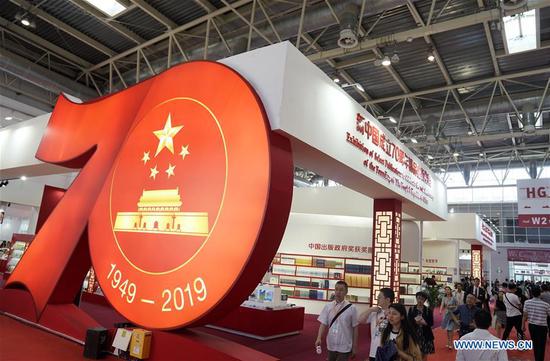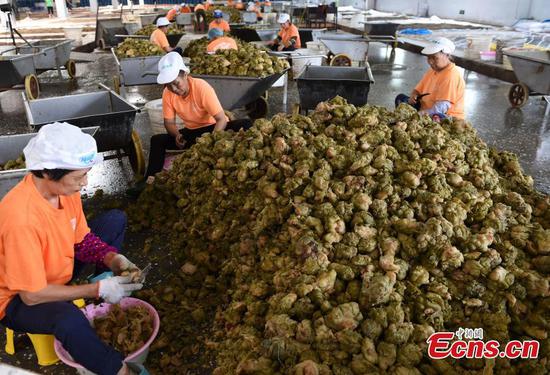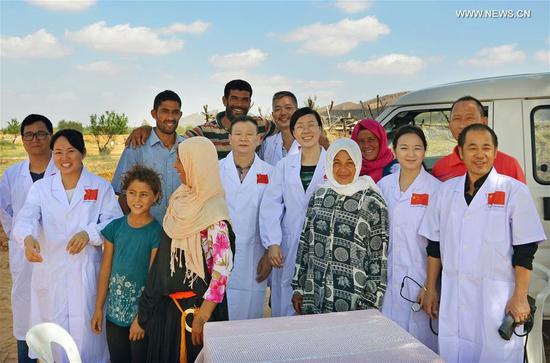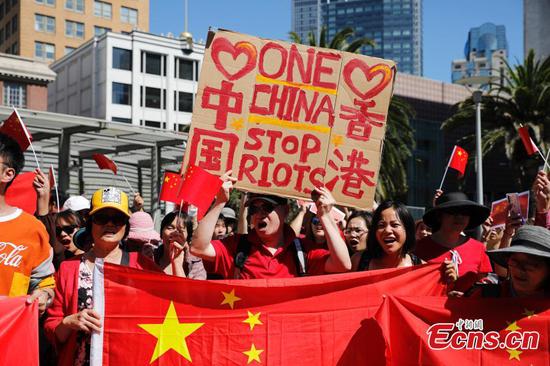
Consumers try out smartphones at a store in Qingdao, Shandong province. [WANG PEIKE/FOR CHINA DAILY]
The recent meeting of the Political Bureau of the Communist Party of China Central Committee said domestic demand potential should be tapped, and the rural market and overall demand expanded.
Facing the complicated global economic environment, China has to boost domestic consumption and strengthen the industrial chain to achieve high-quality development, for which it has to further deepen reform.
Since the beginning of this year, thanks to growing global uncertainties including trade disputes, Brexit and some economies' protectionist policies, the global Purchasing Managers' Index has been declining with the new export orders index registering negative growth. And global organizations including the International Monetary Fund, World Bank and the Organization for Economic Co-operation and Development have downgraded their global growth forecasts, reflecting the rising risk of global downturn.
Many major Western countries have not yet fully recovered from the 2008 global financial crisis. Long-term, low-speed economic growth made former US treasury secretary Larry Summers highlight the "secular stagnation hypothesis" in 2013. According to the hypothesis, advanced by Alvin Hansen in the 1930s, it may be impossible for an economy to achieve satisfactory growth, financial stability and full employment simultaneously by using conventional monetary policy if it remains in depression for a long time.
The key evidence of "secular stagnation" is that the natural rate of interest in Western economies including the United States, Canada, Britain and the European Union is declining. In particular, the EU needs negative natural rate of interest to maintain sufficient employment, which is hard to achieve given that both its nominal interest rate and inflation rate are very low.
Besides, a low interest rate in the long run risks creating global asset bubbles, which in turn could result in gloomy global growth prospects.
Since the 1990s, globalization has been led by the multinational corporation-dominated global value chain and super-large scale capital flow across the world under a multilateral negotiation framework.
The period also saw major Western countries embracing neoliberalism and loosening or withdrawing their control over the interest rate and credit, and privatizing state-owned financial organizations. But a large part of the expanding global financial trade centers on high-risk hedge funds, not on productive activities.
Under such circumstances, the existing global organizations cannot effectively cope with the economic fluctuations, giving rise to political issues in various countries which in turn have undermined globalization.
The external risks for China may continuously increase given the uncertain global economic environment, and the global downturn will slow China's export growth rate.
Moreover, the new phase of globalization, by restructuring the existing industrial chain, could threaten the global distribution of labor and factors of production. As such, China should strengthen the domestic industrial chain to cope with the uncertainties created by the changing global distribution of labor and to boost consumption.
The authorities should also further deepen reform, rather than using short-term stimulus measures, to boost consumption. About 40 percent of China's population lives in rural areas but accounts for less than 15 percent of its total consumption, which means rural consumption has much room for expansion.
Although the consumption structure of urban and rural residents is similar, rural residents spend more on food, tobacco, alcohol and healthcare, while their urban counterparts spend more of their income on clothes, education, culture and entertainment. Rural consumption can be raised in three ways.
First, by improving the medical services for rural residents, the authorities can help reduce their healthcare burden, leaving them with more disposable income to spend on other goods and services.
Second, by improving the telecommunications infrastructure in rural areas during the 5G construction phase, the authorities can encourage rural residents to spend more on telecom services.
And third, by taking measures to increase farmers' incomes, the authorities can boost their consumption potential. Only when farmers' incomes increase can rural consumption continuously grow.
The author is a researcher at the School of Economics, Renmin University of China. The views don't necessarily represent those of China Daily.


















































